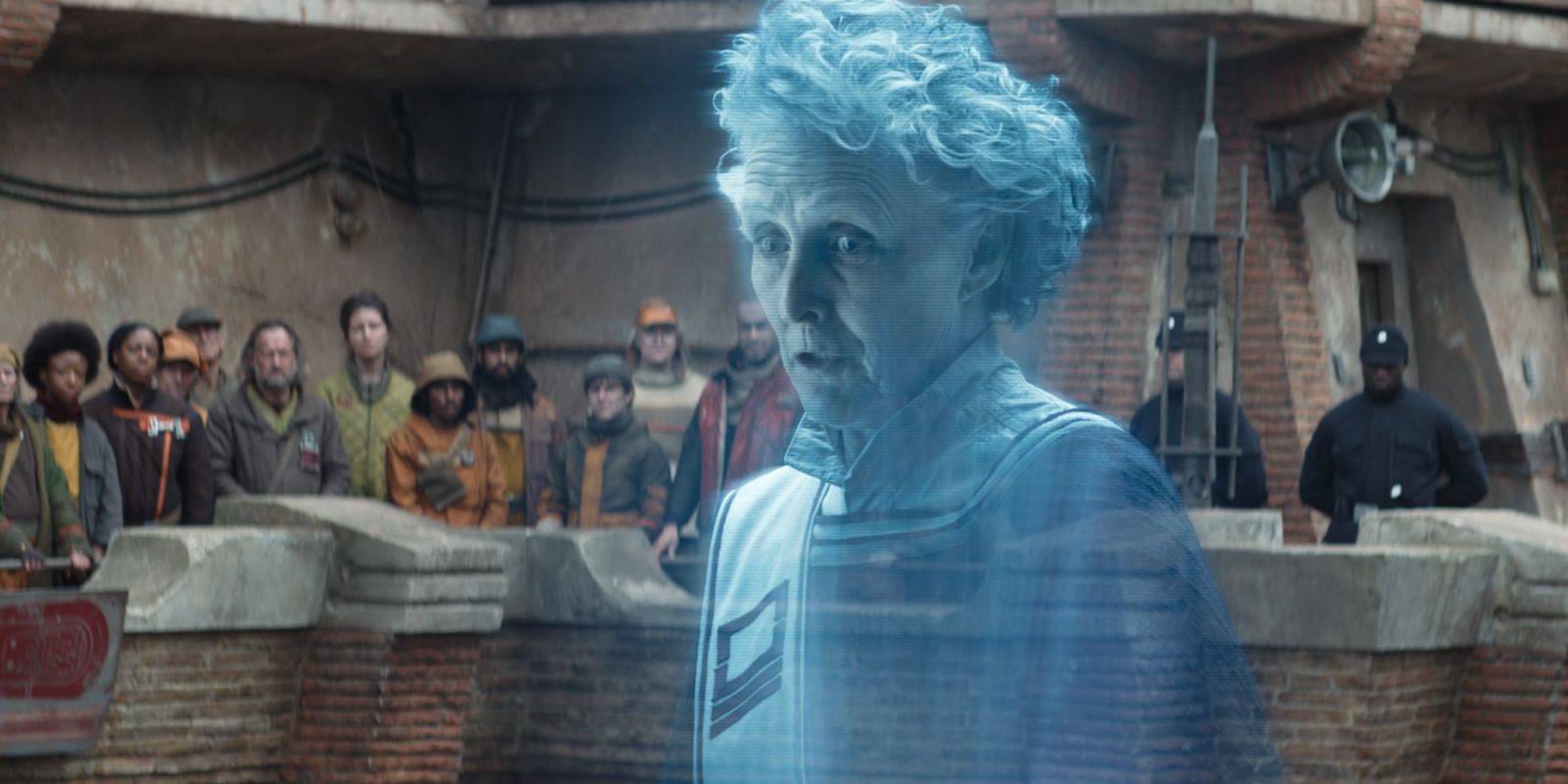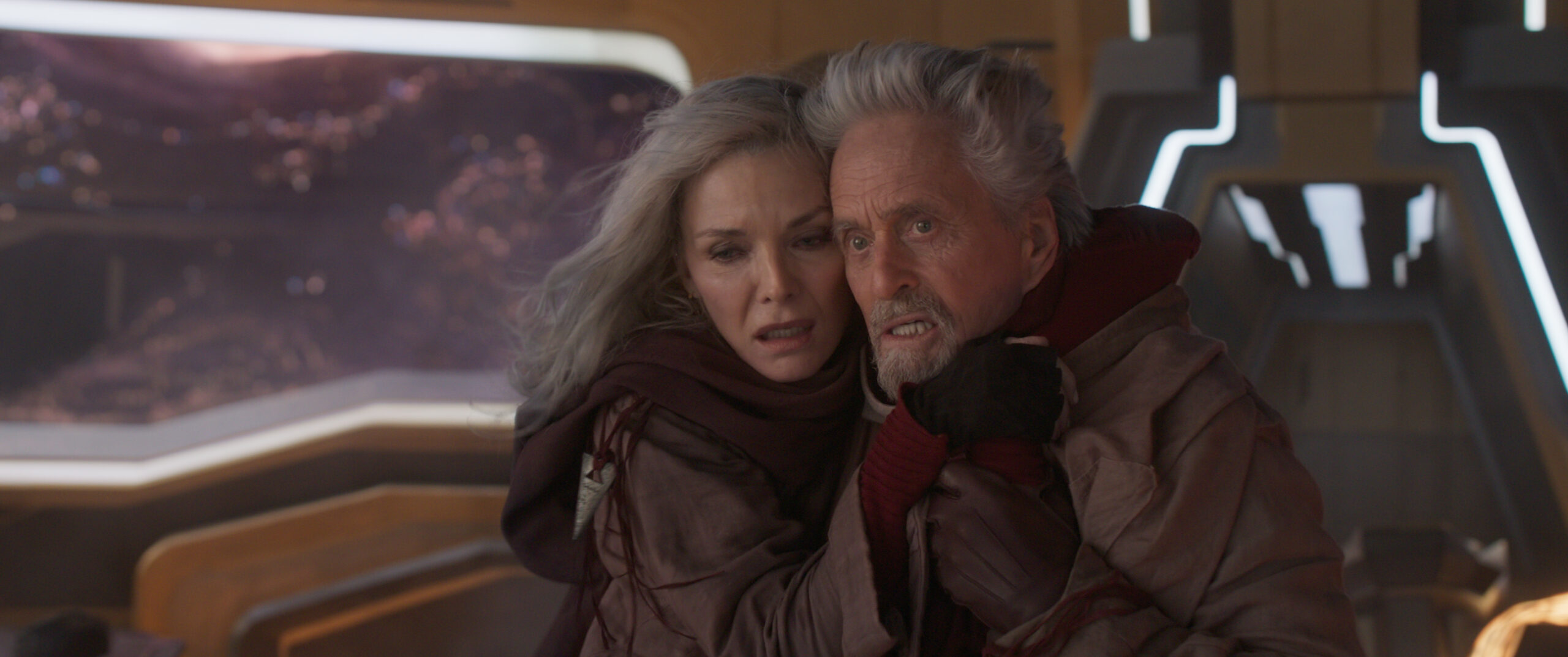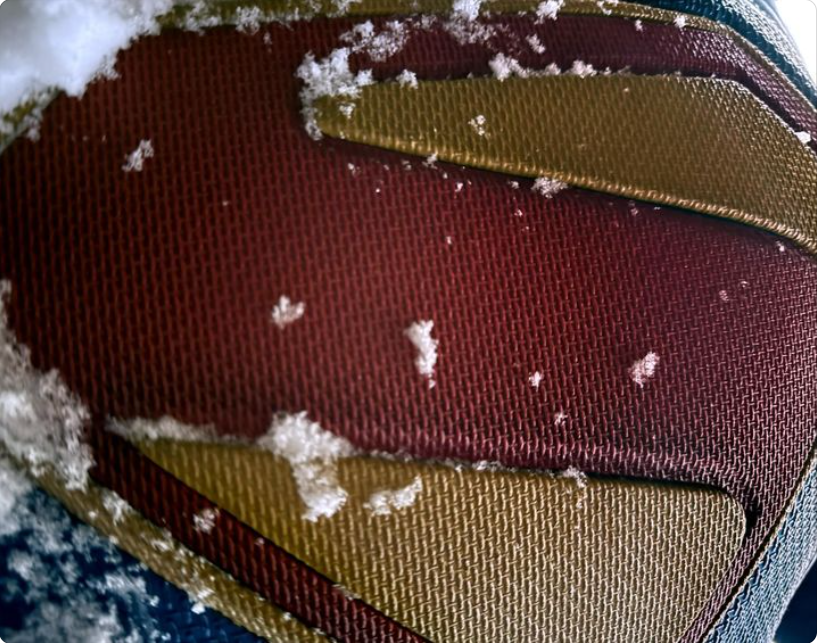![]()
The future looks bleak in the sci-fi “Snowpiercer.â€
Already out on VOD, Blu-ray and DVD, the sci-fi film has garnered plenty of publicity on its beautiful shots and complex storyline.
It is set in the future, in which a failed climate change experiment killed off nearly the whole planet except for the lucky few who boarded the Snowpiercer train that travels around the globe. And after years, a complex class system emerges and culture on the train.
Leading actor Chris Evans and co-producer Dooho Choi were attending San Diego Comic-Con International last week to promote “Snowpiercer.†In a small roundtable full of reporters, they discussed a lot about Joon-ho Bong’s direction and skills on the production.
Latino-Review’s special convention correspondent Randy Fuchs contributed to this report.
Read the full transcript below.
Question: I had several passionate discussions about the movie last night. How much of the movie is supposed to feel like fable and how much is supposed to be a hard-edge adult-minded movie?
Chris Evans: Was it ever discussed as a fable? I wouldn’t have done the movie if I didn’t have confidence in [Joon-ho] Bong finding deeper layers than just an interpretation of the graphic novel. That’s what Bong is phenomenal at. In all of his movies, there’s a lot more than meets the eye. So you have a lot of trust in Bong’s intention than just on the surface.
Dooho Choi: There’s definitely a lot of allegory and metaphors. I think the conversations between Bong and Chris are about his character and his journey. And on how to make it real.
Question: When you’re preparing for the role, did you do any research in concerns for people living in these close quarters?
Chris Evans: I tried to spend some time on the set. The set is so beautiful. The best thing about this movie is that it is a tangible world to play off of. The first day I went down and saw on where we were going to be filming—it was so beautiful. I wanted to say that if I could carve out some time to come here and stay here for a while. There were a few days where I went through a couple of cars and hung out by myself. I kind of was getting a sense of what it would imagine to be like. It’s impossible to grasp the full concept without being there for a full seventeen years, but you do try to spend as much time as you can to be comfortable with the environment and understanding on what that sensation would be.
Question: Which one of the trains was your favorite?
Chris Evans: I liked the tail section. For me, that’s Curtis. That’s who he is. The tail section is hard, grimy, dirty and rough. It’s real. That’s where I had the most fun back there. [Paused] The tail section.
Question: We see like 20, 30 or like 40 cars in the entire film, but in the long shots—it seems like a thousand cars long. Were there any other train cars we didn’t see explaining on where the states came from?
Dooho Choi: It’s actually a sixty car train. We see twenty-six cars. That’s how many cars we’ve built. So there’s definitely a lot of cars we don’t see in the film.
Question: Could you tell us some of those cars?
Dooho Choi: We just shot on what were those in the script. So it was whatever fulfills the narrative needs with the particular section and that’s what we shot. They asked Bong if there are any cars he imagined that he didn’t shoot. One of them is a zoo section with the animals crammed in. There was a giraffe with his head down to fit inside. That was ultimately abandoned, because he wanted to show life at the end. He didn’t want animals living on the inside.
Question: I have a question about the DVD release. Did you have any thoughts on how quickly the DVD/VOD came out after the theaters?
Chris Evans: I’m just learning about this. The movie was done phenomenally well, but this is all pretty new to me. Being an actor for “X†amount of years, I certainly don’t concern myself with how or when things are released. This is all brand new to me. I just directed last year. There are so many elements of post-production and on how a film is handled. I’m still learning. It seems like this is a pretty pioneering film. It’s on how VOD has been accepted in the market. It sounds like it’s been doing pretty well in the capacity of which is released. I couldn’t really give my opinion so it wouldn’t be worth it.
Question: Do you have a personal preference on how you would watch the movie?
Chris Evans: I absolutely think the movie should be seen on the big screen. I did read somewhere that someone from Radius said a screen is a screen and that’s a screen. There’s a couple of different ways to interpret that. Personally, I like going to the movies. I like to buy my ticket and sit in the theater. I guess that’s still available. It would be ashamed if we lost that opportunity.
There are a lot of people who have contacted me that they saw the movie not in the theater. They still have a lot of good things to say. It’s a grey area in terms on what’s the best way to do this and what’s it worth.
Question: One of my favorite scenes is with the night vision scene…..that battle. It looked incredibly complex to make. Can you talk about that?
Chris Evans: Sure. I was hairy. It’s dirty. It’s one of those scenes we had those great stuntmen and great stunt coordinators in the scene. A lot of it is far more choreographed than you think. They really know what they’re doing with each mark they know they’re hitting. It’s a sloppy fight and it’s supposed to look messy. It’s a train fight so it’s supposed to look a bit unorganized. They did a really good job of accomplishing that. It’s kind of like a dance.
Question: In that fight scene, you slipped on a fish. It’s my favorite moment in the entire movie, but it seems so out of place in an American-stylish movie. Were there any discussions about that?
Chris Evans: There may or may not be a discussion, but I was thinking it. There are so many parts of this movie where you would go “What? What?!? What’s going on?†When they bring out the fish and cut it—you’re trying to figure out what they’re doing. It’s what makes this movie so cool. It makes this movie so special, unique and so artistic. It’s powerful. It is really out of left field. It is so Bong in a way. It just makes sense.
There are a lot of moments in which you kind of question it or even in certain sections. Even with the script when you read it and question it if it makes sense. There’s just a trust you have to have with certain filmmakers since you know they have that artistic eye to make sense of it to a willing audience. A lot of times you would hand over the trust to the director.
Question: What are some of those moments that you would go “What the heck?â€
Chris Evans: All of them! When I read a couple of reviews, one of the big things that I wanted was more explanation. How did this happen? I just wanted more info. What was the experience? Where was this train when the Earth froze? Was the train in one spot and everyone clamored on at once? My rational mind wanted more clarity. So you bring these things up to Bong, but it almost felt like that’s not necessary. He saw a bigger picture. He saw something broader, something more beautiful and artistic than my mind can grasp on paper. Ultimately, it did make sense.
There were these phenomenal reviews from people who just went on the ride. It’s just like “Blade Runner.†You just accept certain things. When you’re reading the words on a page, your mind desperately wants to make sense of things. It’s hard to realize you’re going to have this vision quarterbacking on these scenes.
Initially, there were a lot of scenes when I go “Wait, a minute. Who’s sending these things? Who’s sending these red letters?†There are a lot of questions I had, but if the movie’s done right—you go for the ride.
Question: In terms of distribution, there was a fan campaign for a release in the United States—are you surprised by the level of passion that seemed to be inspired when they weren’t going to be able to see it? And how this is so different from a lot of things you’ve done previously?
Chris Evans: I’ve been surprised about everything on this movie. In every movie you make, you hope people will enjoy it. This movie has surpassed all of my expectations across the board. Every single day, I have people e-mailing and texting me to say wonderful things about this.
In terms of the way it was released, I’m a little green. I’m still learning. It’s been a constant surprise and a constant satisfaction in the way people are receiving it whether it’s in the theater or on VOD. It’s been phenomenal.
Question: With the things you’re learning from then, you mentioned that you wanted to transition into directing. Is there anything else besides from the release that you really learned and will take into your development as a director?
Chris Evans: Bong does things really differently as a director. It’s amazing. It’s unbelievable. It’s one of the things when I go on set and blows my mind. Typically when you’re shooting a scene, you would shoot on a master and get us together on a two-shot. We would do the whole scene on your single. And we would do the whole scene on my single. We would have a lot of options in the editing room to put the scene together as you would choose.
Bong would shoot the edit in his mind. So you have storyboards. If he saw the scene between you and I with the first four lines in a two-shot—the next two lines are on you and the next two lines are on me—that’s what he shoots. You literally shoot and cut. [Snaps fingers]
There are days that I have plenty of dialogue that is not on film. There’s no footage of me saying certain dialogue. He shoots the movie according to what he sees in his brain. It’s a bold and terrifying thing I’ve ever seen for any director to do.
Obviously, it worked out. I would never do that, because I would never be that confident. [Laughter] It’s one of those amazing things you could do when you’re that powerful of a filmmaker.
Question: Let’s talk about Tilda Swinton in this movie. Could you talk about the scenes with Tilda and what she helped drag out of you as an actor? She is obviously from a galaxy better than ours. [Laughter]
Chris Evans: She’s not human. We are all lucky to be witnessing her as an actress. The best thing for actors is to trust the director and be willing to collaborate. Tilda is a good enough actress and be confident enough in her ability. Bong gives her any note—any note! And she goes, “Sure. Let’s try it.†She’s up for anything, because she knows it’s going to be phenomenal. It’s a wonderful collaboration with bold willingness. It’s so real and so authentic. You find that yourself watching her. You forget you’re acting anymore and just spectating. Then you go, “Shit! I have a line.†[Laughter] She’s so good that you’ll get lost in what she does. She really is in another stratosphere.
Question: Did you have any scenes that didn’t make it to the finished film?
Chris Evans: Did we? [Turns to Dooho Choi] I don’t think so. Bong doesn’t do that. When he shoots—he knows.
Dooho Choi: He has an on set editor on the set. He is cutting the scene as we’re shooting. At the end of the day, you will watch…..
Chris Evans: You will watch the scene. You film the scene and by the end of the day, you will watch the scene. It’s unbelievable! It doesn’t happen in movies. I never have been a part of a movie like this.
Question: The reason why it had this new form of release as Forbes went into an extensive article saying it would only make this much money, but will have more exposure as a result. The Weinsteins probably wanted the film to be under two hours and lose some of the subtitled portions of it. Could you go into any details on what changes were going to be made and what portions they wanted to lose from the film?
Dooho Choi: I think they just wanted to make a shorter film and a commercial type of film. I think the point is what makes this film unique is all of the things that Bong is great at. That’s why we decided that it’s best to keep it in tact.
Question: Was there another cut actually made?
Dooho Choi: There was some test that we’ve done. There was a version that we’ve tested that was twenty minutes shorter. It didn’t test as well as his version.
Question: Is there any truth to the fact that the Weinsteins were particularly uncomfortable that featured a shooting inside the school train car?
Dooho Choi: I think there was some concern initially, because of the shooting in Connecticut that happened not too long ago. By the time we released the movie, it wasn’t really an issue. The people who saw the film would realize that this was not a contemporary setting and in its own unique world. It went away and it wasn’t an issue.
Question: You talked a little bit earlier that it was important on the background of the story for you. Could you talk about on why it was important for you getting into the characters as an actor? And how it may change when you became a director?
Chris Evans: You always take the time to get into the skin of the character and the collaboration with your director is enormously important. Every actor is different and approaches things differently. The director is just not just about setting shots and communicating with every department. It’s about being able to know your actor; what they need; and what they want. To get them where they need to go, sometimes you have to pull them aside and give them a twenty minute discussion. For just needed to get out of their way. It’s an art unto itself.
I couldn’t ask for a better experience with Bong. Bong gave me everything I could’ve wanted. He was phenomenally supportive even on the more emotional days. He’s amongst the best directors I’ve ever worked with. Even with the slight language barrier, he knew how to pick very unique words. He could just give you a simple “no†and you would go “I got it. I know exactly on what you want.â€
In directing myself, you have to approach every actor with kid gloves.
Question: Does the movie have a hopeful view of humanity or a bleak view of humanity? What’s your opinion?
Chris Evans: That’s a good question.
Dooho Choi: Actually, it’s a bleak journey to a happy ending.
Question: You have a great emotional speech at the end. As an actor, is it terrifying or is it exciting?
Chris Evans: It’s terrifying, because…..[Laughter] Movies are collaborations. You give a performance and you hand your performance over. I’ve seen a lot of times you’ve done things in movies and you see the final product may not be on what you wanted it to be. It’s only scary if you don’t trust your director. If you trust your director then it’s beyond exciting.
It’s a beautiful cradle that a good director could provide to let you explore and take risks. If you don’t trust your director, it really handicaps your ability and risks. If you’re comfortable with your director—then you’ll be confident to take changes. So roll the dice. With Bong, there’s a lot of different takes and you try a lot of different things. And you’ll feel confident it’ll work out in the end.
“Snowpiercer†is currently available on VOD, Blu-ray and DVD.
Source: Latino-Review

 FOR FANBOYS, BY FANBOYS
Have you checked out LRM Online’s official podcasts and videos on The Genreverse Podcast Network? Available on YouTube and all your favorite podcast apps, This multimedia empire includes The Daily CoG, Breaking Geek Radio: The Podcast, GeekScholars Movie News, Anime-Versal Review Podcast, and our Star Wars dedicated podcast The Cantina. Check it out by listening on all your favorite podcast apps, or watching on YouTube!
Subscribe on: Apple Podcasts | Spotify | SoundCloud | Stitcher | Google Play
FOR FANBOYS, BY FANBOYS
Have you checked out LRM Online’s official podcasts and videos on The Genreverse Podcast Network? Available on YouTube and all your favorite podcast apps, This multimedia empire includes The Daily CoG, Breaking Geek Radio: The Podcast, GeekScholars Movie News, Anime-Versal Review Podcast, and our Star Wars dedicated podcast The Cantina. Check it out by listening on all your favorite podcast apps, or watching on YouTube!
Subscribe on: Apple Podcasts | Spotify | SoundCloud | Stitcher | Google Play



